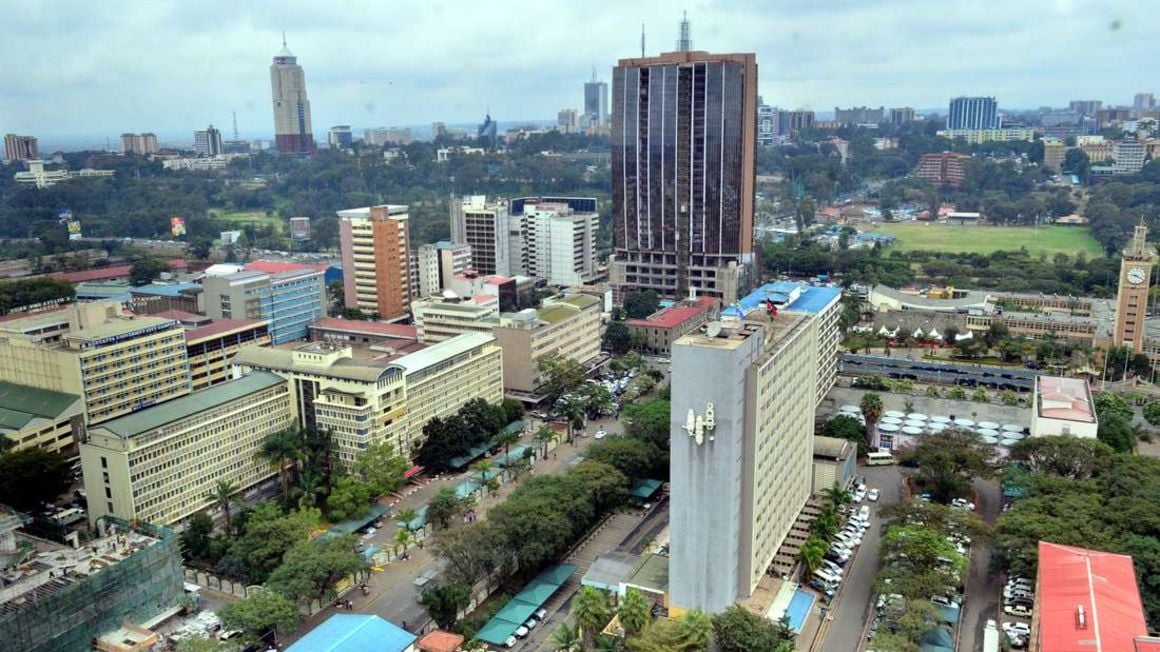
An aerial view of Nairobi. FILE PHOTO | NMG
Summary
- Remote working is quietly fermenting re-set with new business models for increasing value and customer experience.
- The change although precipitated by Covid-19 and new technologies is likely to become the new normal within the development realm.
- And if this trend continues, some of the investments we are making today might become white elephants in the future.
Remote working is quietly fermenting re-set with new business models for increasing value and customer experience. The change although precipitated by Covid-19 and new technologies is likely to become the new normal within the development realm.
And if this trend continues, some of the investments we are making today might become white elephants in the future.
I must say that there are immediate benefits from this changing scenario. A quick survey I undertook recently among 46 working graduate students revealed that virtually everyone is beginning to like the new normal.
A majority of them felt that their stress levels have declined. They attributed this to less commuting that is sometimes stressful.
More than 80 percent of them said that they had become more productive now than they have ever been. Others noted that they now have more time with the family and can afford time for exercising. Although some argued that due to these changes they have managed to keep the disease at bay, it is too early to attribute well-being to exercise since it is also claimed that wearing of masks has kept opportunistic diseases like common cold at bay.
The feelings towards the emerging changes are not only in Kenya. Studies in other countries corroborate the findings. A recent study by BBC on the remote work experiment revealed that it has upped the productivity by 13 percent. It also established that “workers were 13 percent more productive at home.” Some however claimed that working from home is distracting and draining but they were in the minority.
The consequence of more people working outside of the office also includes the reduction of pressure on urban housing development since people may choose to work outside of the city. Some of the big infrastructure like the elevated expressway from the airport to Westlands could become a white elephant in case the traffic jams cease, and people start using the commute time for exercise to promote healthy living leading to less medical bills.
And other infrastructure which were planned to address traffic jams will also become irrelevant. That could mean tapering down some expensive road works that are planned and perhaps increase investments in suburban workspace.
Future technologies will make it even better to work remotely. If the pace of technological change continues to favour remote workplaces, it might have an impact on the future for development. For example, new suburban housing infrastructure might spark other investments such as good schools, office facilities and other infrastructures within the suburbs.
The thinking of such investments is not new given the fact that it has been mooted before as a strategy to reduce commute times.
In Kenya, more than 50 percent of the survey respondents gave several accounts where some people had a challenge finding the right space to work from home or to attend remote learning.
Some are being forced to travel to common workspaces in order to work. The concept of common or collaborative workspace is fairly new and is mostly concentrated in Nairobi, Mombasa and Kisumu. There is a need to invest in such spaces in other cities and counties with specific attention to poor neighbourhoods.
At a personal level, I can attest to the fact that in the past nine months of the pandemic, I got to do more this year than in previous years. In some cases, I could attend to two to three virtual conferences spread across the world, teach for at least two hours and still get time to do my 10 to 15 kilometres daily running.
This was unthinkable just a few months ago when I spent hours in jams trying to juggle teaching, speaking engagements at different locations and get a few minutes of exercise.
While many are changing, some hope the old ways will return.


No comments:
Post a Comment